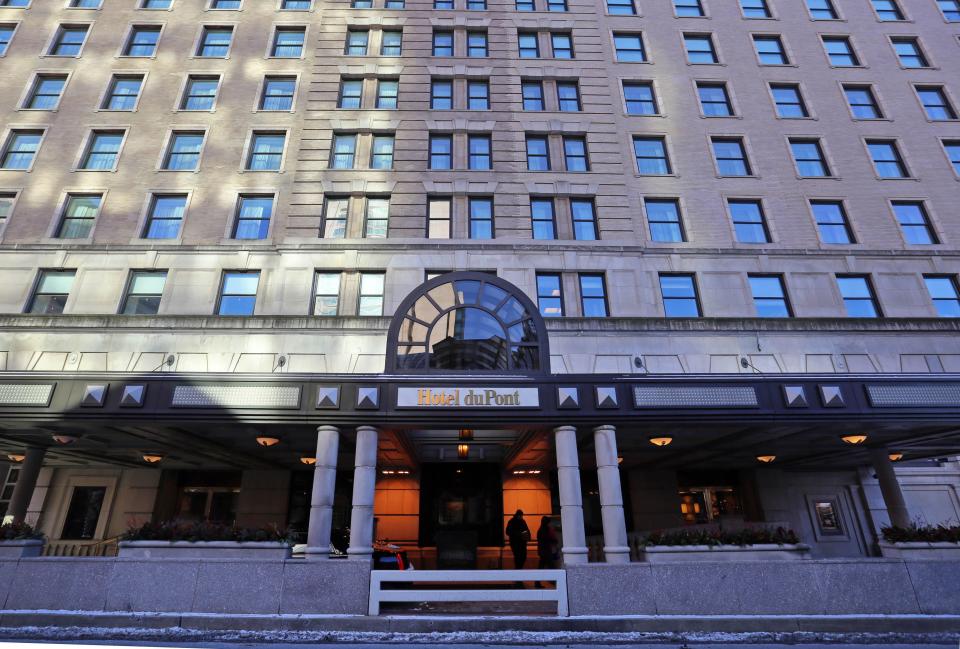Wilmington council rejects water bill reforms as administration promises policy changes
Ahead of a vote on legislation that would protect people from losing their homes over unpaid water bills in Wilmington, the city administration is pledging to make reforms to its collections process.
Mayor Mike Purzycki’s deputy chief of staff, John Rago, said the mayor and Councilperson Yolanda McCoy have been in discussions over the last few weeks about changes to the city’s delinquent collections policy and have reached some agreements.
Rago said, “From this point forward, 96-hour water shutoff notices will not be sent to delinquent customers until after six months of delinquency.” Customers will still receive notices at 30-day intervals, he said. The administration has also agreed that “water-only debts will no longer be factored” into Wilmington’s decision to pursue foreclosure on a property.

“If, for example, a property is about to be taken to sheriff sale for delinquencies of property taxes and water, the water debt will be removed from the equation,” he said. “If that removal means that the property no longer qualifies for sheriff sale, then the monition action will be stopped.”
What happened to the proposed bills?
The planned reforms come amid local advocates calling into question large commercial properties in Wilmington with significant unpaid water bills seemingly being given leniency on their debts, and Councilperson Shane Darby’s three bills coming to a vote Thursday evening.
RELATED: Why Wilmington council wants to prevent foreclosures over unpaid water bills
About 20 people spoke in favor of the package of bills, emphasizing that what's being done currently isn't enough.
"We need real systemic changes, not Band-Aids," Meryem Dede said.
Speakers pointed out that city officials have recently reported a majority of 311 calls coming into Wilmington are about water bills, remarked that there's not enough funding in the water assistance program to help all those who need it, and many residents still struggle to get connected to that assistance.
Darby's legislation would have:
Prohibited Wilmington from including unpaid water, sewer and stormwater fees in foreclosure pursuits against customers who occupy the homes in question.
Exempt older adults and disabled residents, as well as homes with children under the age of 5, from having their water disconnected for nonpayment of water bills.
Created an affordable water system.
Despite the support among residents, the Wilmington City Council rejected codifying protections for homeowners to prohibit foreclosure over unpaid water bills in an 8-2 vote late Thursday, with three members voting "present."
The council also voted against establishing an affordable water system (defeated 7-5 with one member voting "present") and prohibiting water shutoffs on older adults and disabled residents, as well as homes with children under the age of 5 for unpaid water bills (defeated 11-2).
Before the votes, Darby stressed that policy changes aren't law, and thus could change with a new administration.
WILMINGTON'S 2025 BUDGET: Mayor touts city's economic strength, proposes water rate increases in new budget proposal
When the legislation was first introduced, city officials pushed back on the proposals, arguing that water shutoffs and filing liens over unpaid water bills are the only two “enforcement arms” the city has to recover the unpaid bills.
At the time, Finance Director Brett Taylor said for a property to reach a threshold for foreclosure, it must owe $10,000 or more in unpaid property taxes, utility bills and/or city Licenses & Inspections fees. That threshold is the same whether it’s a commercial or residential property.
Commercial properties with unpaid bills
The Wilmington Fines and Fees Justice Team reviewed water utility bill records for the Hotel du Pont and the Westin, located at 42 W. 11th St. and 818 Shipyard Drive, respectively, and discovered both have accumulated tens of thousands of dollars in unpaid water charges.
“The consequences for being late paying your water bill are clearly harsher for residential customers than they are for commercial customers. That doesn’t seem fair,” the justice team said in an email blast Thursday ahead of the City Council meeting. “If the city can avoid shutting off water and foreclosing on commercial customers like the Hotel du Pont and the Westin, we think the city of Wilmington can put in place practices to protect vulnerable populations from living without water and make sure that no homeowner loses their home because they can’t pay the water bill.”
A bill from January 2024 issued for the parcel that encompasses the Hotel du Pont, the DuPont Building and an apartment building at 101 W. 10th St., among several other parcels, showed a balance of $124,537.47. The property accumulated $10,273.29 in current charges, and there had been no payment made during the last billing cycle, according to the latest utility statement available on the Wilmington Citizen Self Service website.
A payment plan was set up for 1007 N. Market St., according to the Wilmington Finance Department, which will be satisfied “within the next 12 months.”

A March bill for 818 Shipyard Drive, which city officials characterized as Shipyard Shops, totaled $92,857.11, according to the latest utility statement available on the self service website. It shows the property accumulated $8,830.64 in current charges, and nothing had been paid during the last billing cycle.
City officials said 818 Shipyard is “under review” for “possible resolution.”
“In both cases, the owners have a regular pattern of payments. Consideration is given to owners who have demonstrated the means to pay and will likely fulfill payment agreements,” according to city finance officials. “Since these bills are large, missed bills will often lead to interest charges which can be substantial. Nonetheless, the bills are not behind significantly to warrant a shutoff or sheriff sale.”
The city’s Finance Department added that “multiple delinquency letters” were sent and management was contacted for these delinquent commercial properties.
Got a tip? Contact Amanda Fries at afries@delawareonline.com, or call or text at 302-598-5507. Follow her on X at @mandy_fries.
This article originally appeared on Delaware News Journal: Wilmington City Council rejects water bill reforms

